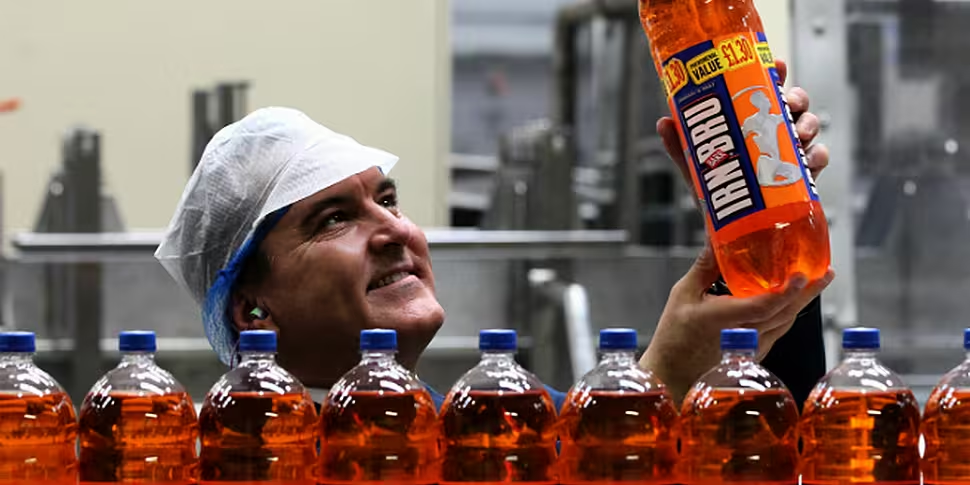AG Barr, the company which produces Scotland's famous Irn-Bru fizzy drink, is cutting its workforce by 10% as it attempts to come to grips with Britain's impending sugar tax.
The company specifically blamed the "significant weight of negative media coverage" surrounding soft drinks at the moment – with sales going flat in the industry – for the likely 90 job losses in its commercial and supply divisions.
It is now aiming to either reduce or eliminate sugar from over two-thirds of its product portfolio by 2018.
The company also sells Tizer, Rubicon and Strathmore water.
Reporting its results for the six months to July, AG Barr revealed that revenues have fallen 3.6% to £125.6m.
A £4m exceptional credit relating to its pensions pot did, however, help profits climb from under £17m to £21.1m.
A company statement said of the performance:
"In line with general market trends, lower and no sugar products have performed better as consumer respond to the significant weight of negative media coverage pointed towards sugar products particularly in the last six months."
While CEO Roger White called the performance "solid", more shots were fired at the UK Government's planned levy on sugary beverages:
"The Government’s proposed soft drinks sugar tax is now in the consultation phase and we will participate fully in the process.
"We believe this proposed tax is a punitive and unnecessary distortion to competition in the UK market which will be very complex, expensive and difficult to implement.
"Our aggressive reformulation and sugar reduction actions, along with our innovation and marketing, will drive sustained and significant improvements in the balance and choice offered across our portfolio.
"We believe our positive actions and sugar reduction progress, along with those of many of our competitors within the soft drinks industry, make the implementation of a soft drinks only sugar tax an unnecessary measure in the context of Government health policy objectives."
After experiencing sharp falls in their share prices when the new measures were announced in March, AG Barr was said to be one of a number of drink manufacturers considering taking legal action to prevent the legislation.
The levy, which was initially proposed by former chancellor George Osborne, would add 24p to the cost of a litre of fizzy drink and is set to be introduced in 2018.
In Ireland, suggestions of a similar tax have been met with similarly stiff opposition from the industry. The Irish Beverage Council (IBC) warned in August that a sugar tax wouldn't have any health benefits and would increase the average shopping bill by €60 annually.
It also said a proposed 10c levy would cost the Exchequer €35 million a year and threaten employment and future investment.
Meanwhile, a study published in the American Journal of Public Health that same month showed that there has been a 21% fall in the number of Berkeley residents drinking soft drinks since the Californian city brought in a tax on the beverages.









